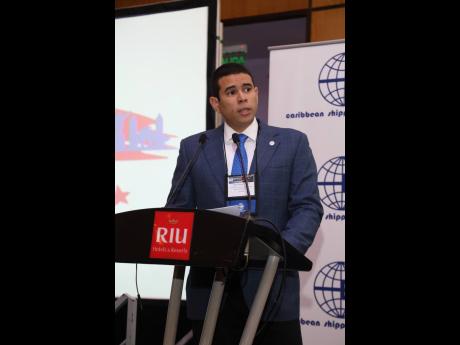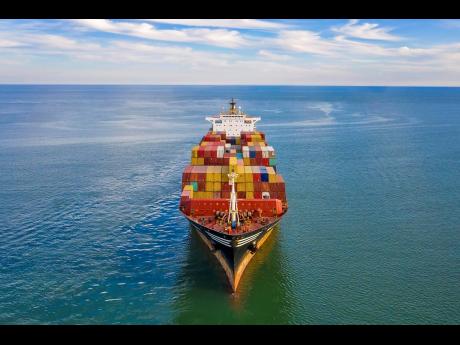Thinking smaller
More data collaboration needed in region, says former CSA president
Data collaboration among regional maritime and allied companies is needed to encourage greater efficiency and competitiveness within the Caribbean.
That’s the word from Juan Carlos Croston, immediate past president of the Caribbean Shipping Association (CSA) and vice-president of marketing and corporate affairs at Manzanillo International Terminal in Panama.
“We need to think smaller. Smaller, as in the small individual data points that make up the vast amount of information the organisations (associations, non-governmental organisations and companies) in our region’s supply chain sector are collecting each day,” Croston said, continuing, “And, as in the small ways, that amount of information can help our organisations adapt to a new world by becoming more efficient and competitive.”
Croston said 90 per cent of goods traded globally are moved by seagoing vessels, while stating that the figure is likely higher within the Caribbean, where factors such as geography play a large part.
He estimates that ports in the Caribbean can account for nearly all goods traded in the region and that data, with “strategic planning, established goodwill and detailed execution”, may be used to assess the region’s supply chain capabilities, project demand, and assist with closing gaps.
The challenges with achieving this include the ready availability of the information, its often-analogue format, which prevents it from connecting to and interacting with other data, and its visibility to those who may benefit from its use, he said.
Organisations have two options; maintain what exists and use their data for individual gain, or apply it to a regional approach. The first option is the “safe” choice, Croston said. “Goods flow along regional supply chains, infrastructure continues to being built, manned by knowledgeable collaborators. However, how can planners be sure that the region has enough capacity for additional trade? How can education centres be sure [of] how many more students to train in each course? Where is the data to take big investment decisions? Moreover, the advent of digital platforms might mean that multinational companies could manage, or own, the data produced by our transportation hubs and assets.
“Organisations could try to tackle the data challenge individually,” he said, noting that some are already trying. “The big challenge for our micro, small and medium-size companies (MSMCs) will be to overcome this data challenge as agile and efficient as their larger peers, with less access to financial resources to invest and less access to technical know-how. There is a risk that larger organisations achieve scale while MSMCs (and its biggest share of the economy) lag.”
However, he said a regional approach could help overcome financial and knowledge-based data challenges by spreading costs among all stakeholders. He acknowledged the method’s difficulty and potential to fail, saying it would require significant time and energy to “build goodwill and trust among stakeholders”.
Despite that, he said the CSA 13 – the largest regional shipping trade body – has begun the lack of region-specific data with the launch of its Caribbean Research Institute, aimed at improving organisations’ decision-making process.
“One can only imagine the vast sea of opportunities out there ready to be found out, if our Caribbean region could find a way to collaborate on data exchange and information,” Croston said, adding that “collaboration between businesses, NGOs (non-governmental organisations) and the academic world is vital to make sure organisations have the right human assets to underpin this great effort. A new market would be created for the generation graduating to a whole new world.
“Sometimes, thinking smaller can lead to great outcomes.”


